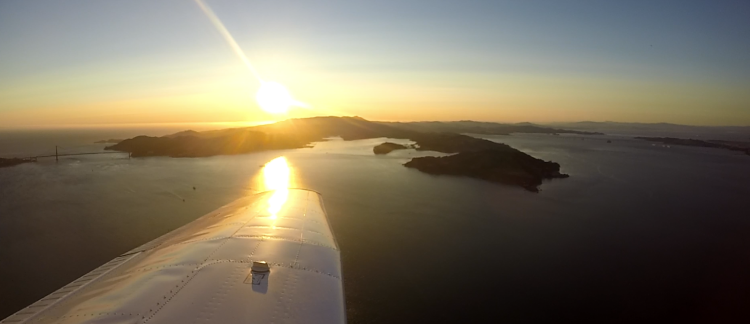Update on Aug. 16, at 3:22 p.m. PT: On Aug. 15, the FAA issued a statement effectively barring expense-sharing for private flights, affecting Flytenow as well as other companies such as Airpooler. As a result, Flytenow has decided to remove the expense-sharing feature of its site, yet still allowing pilots to post trips they plan to take and make them available to other people who’d like to join, although they can no longer pay for a seat on the flight. More details here about Flytenow’s response.
There’s an online sharing marketplace for everything these days. The latest vertical to pop up on our radar: private flights.
Boston startup Flytenow is working to do just that, and startup incubator Y Combinator is putting its money behind it as part of its current batch of startups.
The problem for folks who have a private pilot’s license is that flying alone can be expensive (both owning and renting a plane, as well as fuel costs). At the same time, lots of non-pilots would love to take some flights, either for fun or to get from one place to another.
To help both groups — pilots and would-be passengers — Flytenow has built a flight-booking site on which pilots post the trips, called “adventures,” they’re planning to take. They open these trips up to others might be interested in coming along and splitting the costs with them. It’s like posting on Facebook that you’re planning to drive to Los Angeles from San Francisco for a weekend getaway, and a friend or two asking to join and pitch in for gas and snacks money.
“If you think of all the commercial airlines, there are about 5 million flight hours per year” in the U.S., Flytenow co-founder Matt Voska told VentureBeat in an interview. Meanwhile, about 20 million hours are flown by private pilots every year, and that’s the market opportunity Voska and his team are going after.
When pilots post an adventure, Flytenow divides the total costs provided by the pilot by the number of total passengers the plane can hold. It charges this amount to passengers, regardless of whether or not the other seats get filled. On average, it costs pilots about $150 per hour to rent a plane, according to Voska.
Lack of marketplace aside, the Federal Aviation Administration’s regulations also make it tricky for pilots to split their costs with passengers. According to FAA rules, private pilots can’t actually advertise that they’re willing to work as someone’s pilot in return for payment, as Voska told me. However, the rules do allow them to have a “genuine sharing of the costs” with other passengers, meaning that if you and your pilot friend decide it’d be fun to take a trip to Napa for a day, you can safely split the costs.
Flytenow’s model is designed so that pilots post the trips they’re planning to take, and make the free seats available to anyone wanting to join. It’s “more of a Zimride than a Lyft,” as Voska said, referring to Zimride’s carpool model as compared to Lyft’s model which resembles having a private driver.
But just in case, the team has enlisted the help of an aviation law expert, Gregory Winton of the Aviation Law Firm, and has asked the FAA for an “interpretation” of the law, asking them if it’s all kosher. Voska said they’re expecting a “favorable response,” although the FAA hasn’t yet replied.
Getting as many pilots as possible into Flytenow’s system is the company’s other challenge right now. Many of them are still worried about getting in trouble and losing their license unless the FAA makes a clear statement about this.
Flytenow is currenlty available in Boston and the Bay Area, and plans to expand to other areas, like New York City, Los Angeles, and Chicago. It has about 70 active pilots on its site.
Flytenow adds a $10 booking fee for passengers (pilots post for free), although it’s still experimenting with pricing models. It’s also working to partner with plane rental companies to integrate with their inventory and booking systems and make the entire process more efficient.
Prior to joining Y Combinator’s Summer 2014 class and nabbing $120,000, Flytenow was based out of Boston, where the founders were going to school. Flytenow first picked up $15,000 from the Dorm Room Fund in January 2014, followed by $10,000 from Northeastern’s Idea accelerator program in March. Flytenow was founded by Matt Voska, Alan Guichard, Andrew Mass, and Aakash Patel.
VentureBeat's mission is to be a digital town square for technical decision-makers to gain knowledge about transformative enterprise technology and transact. Learn More

